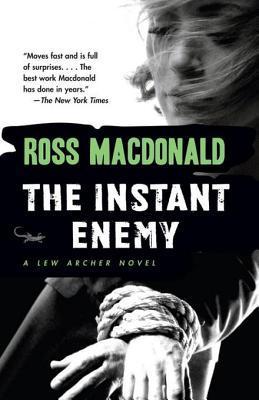What do you think?
Rate this book


212 pages, Kindle Edition
First published January 1, 1968
"Look here, if you're taking sides against me, what do you think we're paying you for?"But, even though Archer maintains solid indifference throughout, Macdonald also seems to lend him more of a level of compassion. ~not that he'd ever really let that slip by making it too obvious.
"For this," I said, "and for a lot of other dull interrogations. You think this is my idea of a social good time?"
"Coincidences seldom happen in my work. If you dig deep enough, you can nearly always find their single bifurcating roots."The classic Macdonald prose wonderfully captures Southern California vistas:
"Late afternoon sunlight spilled over the mountains to the west. The light had a tarnished elegiac quality, as if the sinking sun might never rise again. On the fairway behind the house the golfers seemed to be hurrying, pursued by their lengthening shadows."The story is captivating almost to the very end, but then it suddenly breaks and disappoints in a major plot twist. The convoluted plot is like a clock spring that has been wound too tight. One turn too many and… Snap! Everything breaks apart to leave the clockwork gaping.
”Cases break in different ways. This case was opening, not like a door or even a grave, certainly not like a rose or any flower, but opening like an old sad blonde with darkness at her core.”Three and three quarter stars.